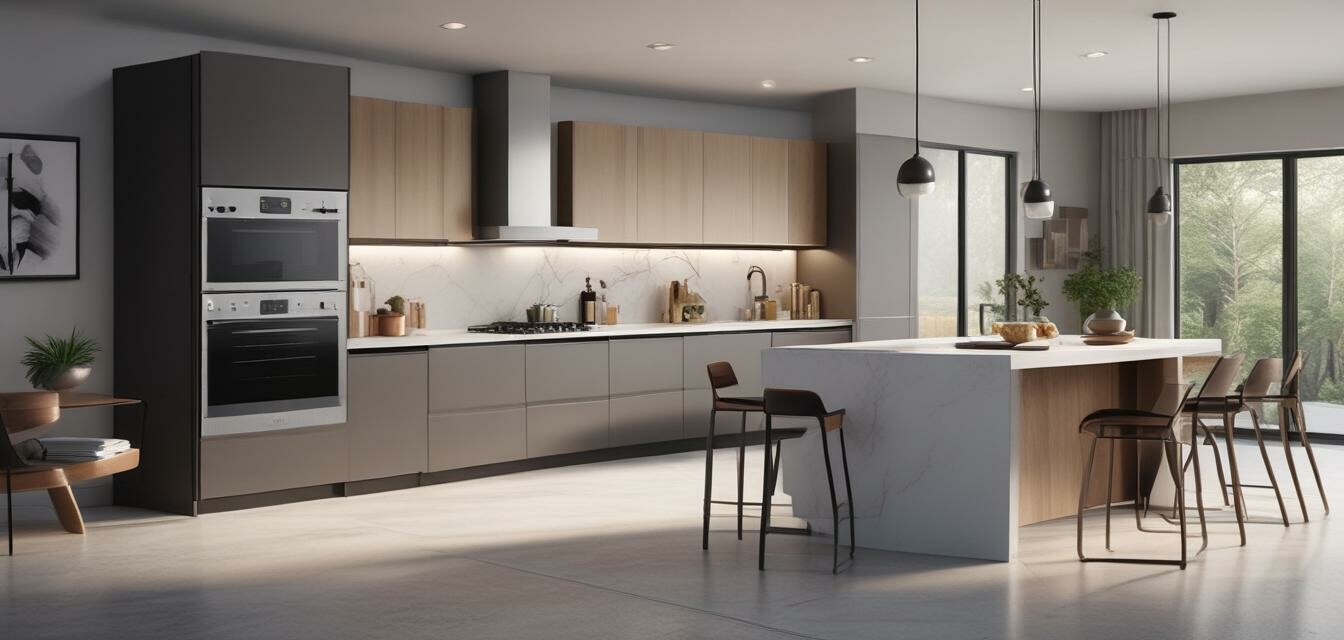
Top Smart Appliance Features to Look for in 2024
Key Takeaways
- Integration with smart home systems enhances convenience.
- Energy efficiency is a growing trend in new appliances.
- Touchless controls and voice activation are becoming standard features.
- Advanced connectivity options improve user experience.
- Innovative designs focus on user-friendly interfaces and aesthetics.
Stay updated with the latest features trending in smart appliances this year, helping consumers make informed decisions when investing in new kitchen tech. Technology in the kitchen is evolving rapidly, and as we move into 2024, several key features are emerging as essential for smart appliances. Let's dive into these innovations and how they can benefit you in your day-to-day cooking and kitchen experience.
1. Smart Home Integration
One of the primary features to consider in smart appliances is their ability to connect with existing smart home systems. This integration allows appliances to communicate, providing a seamless user experience.
Benefits include:
- Centralized control through a smartphone app or voice assistant.
- Automated routines and notifications (e.g., when to refill water filters).
- Remote monitoring and management of your kitchen appliances.
2. Energy Efficiency Features
As sustainability becomes a more pressing concern, energy-efficient appliances are gaining popularity. Look for features that help users save energy and reduce their carbon footprint.
Key energy-efficient features:
| Feature | Description |
|---|---|
| Smart Energy Management | Appliances that automatically adjust energy consumption based on usage patterns. |
| Eco Modes | Settings that minimize energy use during operation. |
| Energy Star Ratings | Certification indicating products meet strict energy efficiency guidelines. |
3. Touchless Controls and Voice Activation
Touchless technology is on the rise, offering a hygienic solution to manage appliances. Voice-activated controls are also becoming standard across multiple devices.
Advantages:
- Reduces the risk of spreading germs, especially in a busy kitchen.
- Allows for hands-free operation, which is extremely practical while cooking.
4. Advanced Connectivity Options
With rapid advancements in technology, connectivity options have expanded significantly. In 2024, smart appliances are expected to offer robust connections to enhance user experience.
Notable connectivity features:
- Wi-Fi and Bluetooth capabilities for seamless device integration.
- Compatibility with third-party apps for added functionality.
- Real-time notifications and alerts for appliance status.
5. User-Friendly Interfaces
As technology becomes more integrated into kitchen appliances, user interfaces are also evolving. A focus on aesthetics and usability is essential for appealing to consumers.
Design considerations include:
| Component | Description |
|---|---|
| Touchscreen Displays | Intuitive, easy-to-navigate touchscreen controls. |
| Minimalist Design | Clean, elegant aesthetics that blend with modern kitchen decor. |
| Customizable Settings | Options to personalize appliance functionality based on individual needs. |
Conclusion
As we step into 2024, the world of smart appliances presents exciting innovations reshaping our kitchen experiences. Consider integrating these essential features into your home to maximize convenience, efficiency, and enjoyment in your cooking setup. To learn more about how these appliances can evolve your kitchen, explore our sections on Bluetooth-enabled devices, energy-efficient appliances, and smart ovens.
Pros
- Enhanced convenience through smart integration.
- Environmentally friendly options contribute to sustainability.
- Touchless technology promotes hygiene in the kitchen.
- User-friendly interfaces simplify appliance management.
Cons
- Higher initial investment compared to traditional appliances.
- Potential for technical issues with connectivity.
- Learning curve for some advanced features.